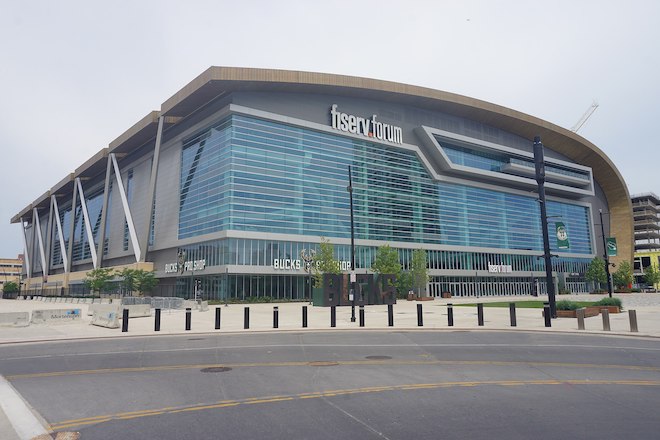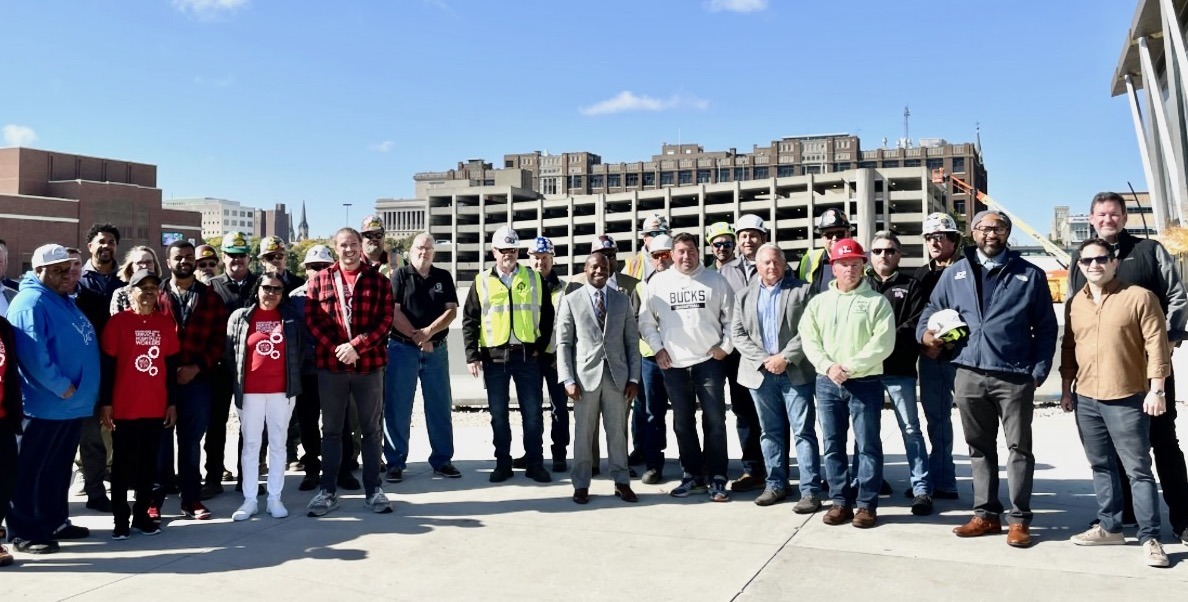Cards on the table: I’m a subscriber to the supply-side progressivism ideas coming out of the San Francisco housing wars. We need more building, not less; more YIMBYism, more zoning for multi-unit apartments, more transit-oriented commercial corridors, more “eyes on the street,” as the heroic Jane Jacobs long ago championed.
Especially for cities like ours, decimated by a decades-long decline in manufacturing jobs, there is a direct link between development and jobs that provide pathways to the middle class. Developers, my progressive friends, aren’t ipso facto evil; they’re dealmakers. If they have a guiding philosophy, it’s some combination of sheer chutzpah and utter rationality. They assess leverage, and a deal either makes sense or it doesn’t.
That’s why I’ve lost interest in hearing the back and forth on the proposed Sixers arena or Comcast Spectacor’s proposed expansion at the sports complex or, for that matter, any contested development project. Because the public narrative tends toward dueling rhetorical shibboleths instead of thoughtful analysis on whether or not a project actually fuels a city in desperate need of inclusive growth.
My late mentor, the great civic champion (and Citizen founding chairman) Jeremy Nowak liked to say that “policy is implementation.” I start from a presupposition that favors building over not building — but all building isn’t equal. The details of implementation are often what matters.
So forget the studies that show that sports arenas do or don’t grow cities. (Most suggest they don’t.) The question is: When done right, can they fuel inclusive growth? And there’s an interesting example in the affirmative right now in Milwaukee.

A win-win-win
From Community Benefits, to Collective Bargaining, and Back: Building Worker Power in Milwaukee, a new study by the University of Wisconsin-Madison’s High Road Strategy Center, dives deep into the economic effects on the city of the building of Fiserv Arena, home of the NBA’s Milwaukee Bucks since 2019. In particular, the study looks at the Community Benefits Agreement between the Bucks and its neighbors, and, five years in, finds a type of win/win/win scenario: The billionaire team owners are still doing great, but also flourishing is a unionized workforce both in the arena and its surrounding Deer District entertainment district. As a result, the city is doing better too, with wages and tax income up. Could the Milwaukee model serve as a roadmap for all big-city development, whether sports-related or not?
Here’s the background. The Fiserv Arena was built with $250 million in state aid, in exchange for the developer and team owners agreeing to be neutral on unionization of all of its service and hospitality workers. As a result, the union’s first contract featured wage increases and cost-of-living bumps for 1,000 such workers at the arena and its surrounding district; last year’s labor agreement between the Milwaukee Area Service and Hospitality Workers Organization (MASH) and the developer raised wages for cashiers, bartenders, cooks, security guards, custodial staff and events personnel by 13 percent to 22 percent right off the bat, with increases in excess of 25 percent in future years. In total, since 2020, Deer District union workers have seen their wages more than double.
No matter the deal … It’s time to widen the aperture of our lens of what we’re talking about when we talk about community benefits.
Last week, I caught up with Peter Rickman, MASH’s charismatic president, who held forth on the history of Milwaukee’s manufacturing exodus, and its ramifications today. At one point, like Philadelphia, Milwaukee was a manufacturing mecca, with union jobs that built a multi-racial middle class, he explained. “Those jobs were replaced by low-wage service and hospitality jobs with no benefits that lack dignity and respect,” he said. “They’re at the heart of our inequality economy.”
No progress will be made in bridging the income and wealth gaps in cities, Rickman argues, until those workers hold this generation’s version of those lost manufacturing jobs. “For 1,200 workers at the arena and Deer District, we’re now providing family-sustaining, good union jobs,” Rickman says. “But Milwaukee has 55,000 service and hospitality jobs. And, without breaking any confidences of talks that are ongoing right now, I can tell you that in other parts of the city, many people are saying, If this kind of inclusive growth is possible in the Deer District, why not here?”
In most large development deals, Community Benefits Agreements (CBA) tend to buy off local community groups by investing in quality of life improvements like providing more parking or, say, footing the bill for streetlights. In Milwaukee, a concerted effort was made — by all parties — to negotiate something that actually tries to fuel inclusive economic growth.
When we talk of CBAs, we think of unions’ Collective Bargaining Agreements, but maybe it’s this other CBA that can really move the economic needle. Get ready to hear more about Community Benefits Agreements, as they’re required for many of the federal grants coming out of President Biden’s Infrastructure Investment and Jobs Act and Inflation Reduction Act.
Aligning all interests
Joey Jung, a senior at Penn, has exhaustively researched CBAs, particularly when it comes to large sports arena deals. I was referred to him by Greg Heller, former head of the Redevelopment Authority and Director of the urban planning consultancy Guidehouse; along with his wife, Citizen contributing writer Diana Lind, Heller is Philadelphia’s housing guru. Jung, he told me, can pinpoint when a CBA is implemented in a way that will help drive equitable growth.
“In Milwaukee and Los Angeles, the interests of the unions were aligned with the interests of the community, so there was buy-in on all sides when it comes to issues like local and minority hiring,” Jung told me last week. “That’s not always the case. In Brooklyn’s Barclays Center the unions were co-opted by a developer to agree to things that might benefit them, but not the community. A CBA has to be enforceable. Brooklyn’s agreement had a provision for an enforcement monitor who was supposed to be checking up on the commitments to build affordable housing in Atlantic Yards, but there was a strange loophole — the developer just never filled the position.”
“Many people are saying, If this kind of inclusive growth is possible in the Deer District, why not here?” — Peter Rickman, Milwaukee Area Service and Hospitality Workers Organization
Speaking of affordable housing, Jung has been floating an innovative idea related to it for large-scale development deals. “The reason the [2018] Los Angeles Clippers CBA deal was so high — $100 million — is that it included a multimillion dollar loan fund to build and subsidize affordable housing in L.A.,” he said, noting that the Sixers opening gambit is a $50 million CBA. “What if you set aside part of the CBA money in interest-bearing accounts — say, $10 million in an account with an annual yield of 5 to 10 percent, and you could have $500,000 to $1 million every year to subsidize people’s rent payments here in Chinatown, for example. You could directly say to tenants, we’ll pay $200 of your rent every month just to make sure the area stays permanently affordable. Of course, this is how Section 8 works, but we didn’t find anything that approximates it in the private sector.”
Jung has reached out to Chinatown leaders, but his idea hasn’t gotten much traction yet. That’s because the priority heretofore has been on protest, not dealmaking. No matter the deal — an East Market arena, an impressive $2.5 billion South Philly sports complex upgrade, the Bellwether District life sciences behemoth, or the capping of I-95 — it’s time to widen the aperture of our lens of what we’re talking about when we talk about community benefits.
We finally have a mayor who, every chance she gets, is hectoring us to be “One City.” She could walk that talk here. Yes, it would be politically perilous, but Cherelle Parker is uniquely situated — and has demonstrated the rhetorical chops required — to bring all parties of big impact development deals together in order to strike Milwaukee-like win-win-wins. That, of course, would mean convincing neighborhood interest groups to start considering the interests of the city as a whole by engaging in good faith negotiations with those who would build — because development can be a means to a more economically vibrant, inclusive end.
![]() MORE ON A POTENTIAL DOWNTOWN ARENA FROM THE CITIZEN
MORE ON A POTENTIAL DOWNTOWN ARENA FROM THE CITIZEN




